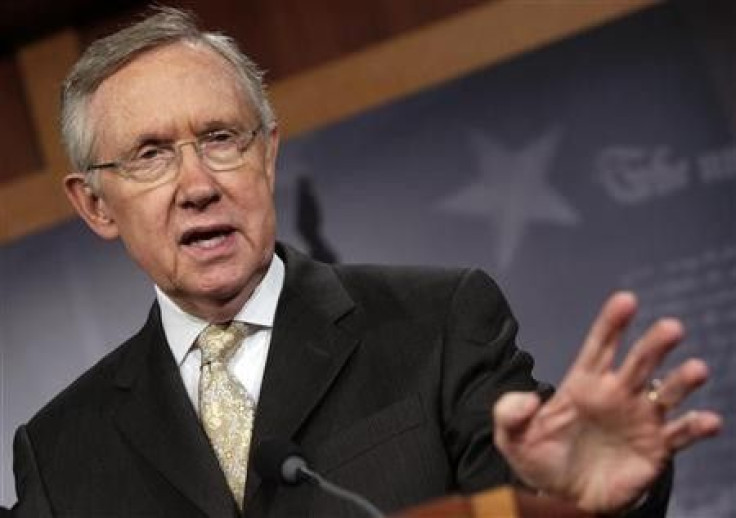Reid To Obama: Bypass Congress If Republicans Stall Debt-Ceiling Talks

Four Democrats in the U.S. Senate are urging President Barack Obama to hold firm in the national debt-ceiling talks next month and even to bypass Congress should Republicans insist on an unbalanced deal.
Senate Majority Leader Harry Reid of Nevada, Majority Whip Dick Durbin of Illinois, Sen. Patty Murray of Washington, and Sen. Chuck Schumer of New York outlined their support for such a move in a letter to Obama on Friday.
“In the event that Republicans make good on their threat by failing to act, or by moving unilaterally to pass a debt limit extension only as part of unbalanced or unreasonable legislation, we believe you must be willing to take any lawful steps to ensure that America does not break its promises and trigger a global economic crisis -- without Congressional approval, if necessary,” the senators wrote.
The U.S. hit the $16.4 trillion debt ceiling on Dec. 31 and is now operating on temporary accounting adjustments that are unsustainable beyond next month. Without congressional approval of new borrowing, the nation runs the risk of defaulting.
Republicans have said they will not lift America’s borrowing limit unless there are significant spending cuts, which they want to encompass entitlement programs, a sore point in negotiations with Democrats.
Congressional Democrats have been advocating that the president invoke the 14th Amendment to the U.S. Constitution, declaring that the actions of Congress aren’t needed to raise the limit, if Congress fails to act on a deficit-reduction plan.
“The validity of the public debt of the United States, authorized by law, including debts incurred for payment of pensions and bounties for services in suppressing insurrection or rebellion, shall not be questioned,” Section 4 of the 14th Amendment reads, in part.
Reid and the other three senators argue in their letter that all Americans, regardless of their political affiliations, must ensure the nation meets its legal obligations. They believe raising the debt limit isn’t a matter for negotiation.
Nonetheless, they wrote, “We agree about the importance of developing a broad, bipartisan agreement on fiscal policy that strengthens our economy and reduces our long-term budget deficit.”
© Copyright IBTimes 2024. All rights reserved.












